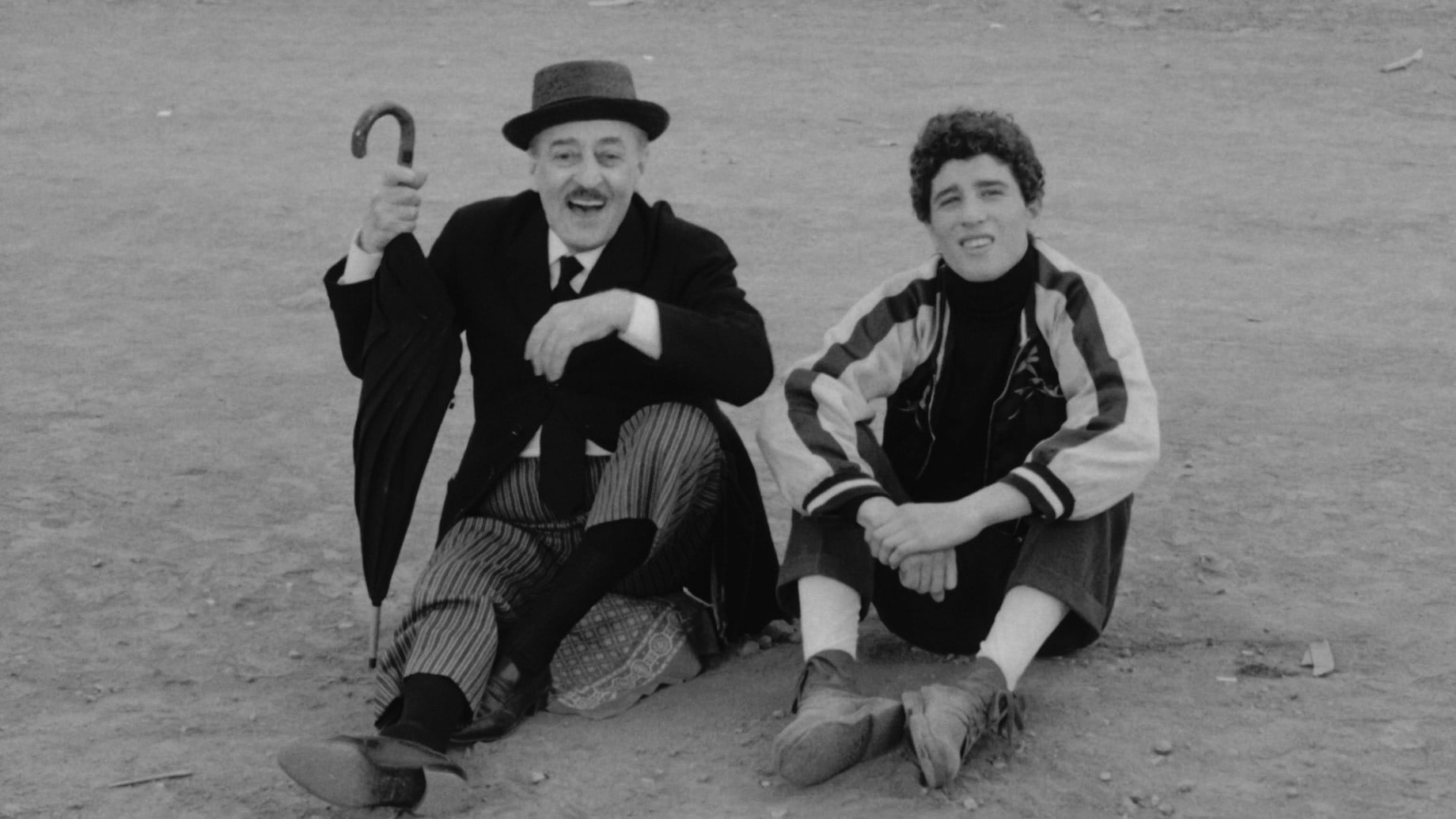Description
A man and his son take an allegorical stroll through life with a talking bird that spouts social and political philosophy.

An off-beat comedy about serious matters by PIER PAOLO PASOLINI.
1966-05-04
N/A
85 min
A man and his son take an allegorical stroll through life with a talking bird that spouts social and political philosophy.
Fascinating neorealist-surrealist tableau of the daily life of Ninetto and his father Toto Innocenti (the holy Ciccillio), who, suddenly, in the mezzo del camminin...and with a raven -son of Mr. Duda and Mrs. Conciencia- instead of Virgilio, a charming and cynical crow due to its resemblance to the Nescio of Erasmus of Rotterdam, undertake a spiritual and metaphysical "crusade", in the manner of fables, to tame and reconcile the hawks and sparrows in God's plan; this is my favorite Pasolini and not the exegetical and historical one; the Pasolini that allegorizes with his own message and from the opening credits feels loose, loose in joviality, he feels in his land; There are no evangelical hermeneutics with correct meanings of this or that gospel, nor historical canons of Hellenic Greece that, precisely for this reason, confine Uccellacci and Uccellini as in other of their works the narrative and, specifically, its plot proposed here. Rather, there are symbolic allusions, for example, just when the Cicillio saint declares himself a man without faith for momentarily failing with the sparrows, the young man, visibly bored, asks permission to play hopscotch , a popularly legendary allusion that implies Dante (who is supposed to represent all human beings in his Divine Comedy) coming out of Purgatory, and facing his fate he had to jump those nine circles, the stone would be the soul). Of course, the crux of these hermeneutic traditions and biblical passages continues here, in this argument, but not following a horizon of interpretation of them as symbolic, indisputable Truths, but rather as small truths, with tiny letters, daily truths, loving and painful, other sad times of God, love, Death, like when the youngster urges his father with questions, and he stops breathing and then, what comes next?The holy Ciccillo announces "Ho trovato", just as the young man jumps but his hopes will not be realized. In the background, Toto himself, who urges to receive his payment for land, is also cornered by other larger land owners. The metaphors of the streets named after people who fled the place, the war aggressions for the lands and the ownership of them with power, as well as the fate of the crow devoured by the "harmless" occasional singers of Carmela, Carmelina, are clear signs of a disenchanted Pasolini, of both spiritual and political pessimism; the crow was right, regardless of a humanity that does not know where it is going, they will not listen to those who propose the course either, said the voice on the left in the raven